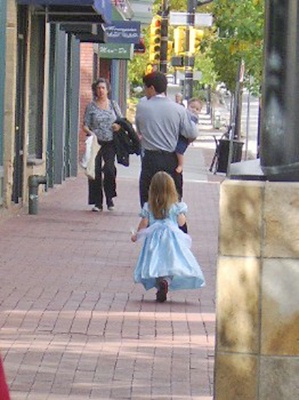All Nonfiction
- Bullying
- Books
- Academic
- Author Interviews
- Celebrity interviews
- College Articles
- College Essays
- Educator of the Year
- Heroes
- Interviews
- Memoir
- Personal Experience
- Sports
- Travel & Culture
All Opinions
- Bullying
- Current Events / Politics
- Discrimination
- Drugs / Alcohol / Smoking
- Entertainment / Celebrities
- Environment
- Love / Relationships
- Movies / Music / TV
- Pop Culture / Trends
- School / College
- Social Issues / Civics
- Spirituality / Religion
- Sports / Hobbies
All Hot Topics
- Bullying
- Community Service
- Environment
- Health
- Letters to the Editor
- Pride & Prejudice
- What Matters
- Back
Summer Guide
- Program Links
- Program Reviews
- Back
College Guide
- College Links
- College Reviews
- College Essays
- College Articles
- Back
Do Fairy Tales Help or Hinder Today's Youth?
Cinderella. Snow White. Sleeping Beauty. Ariel. These are all common princesses that our parents read to us while we snuggled up next to them at a young age, and my personal favorites. We never realize how the fairy tales affect us when we are young, but as we grow older we understand how they were truly “beneficial” to our childhood.
As we grew up with these familiar girls, born of royalty (or known as it), we are taught lessons that are valuable in today’s society. Everyone is equal. Plain and simple.
The Disney movie, Mulan, teaches us this as a Chinese girl dresses like a man to fight for her country. In our modern-day society, it is the norm to publicly accept equality. Take our president for example; EVERYONE LOVES HIM!
When Cinderella’s stepsisters can’t fit their feet into the petite glass slipper, the prince automatically overlooks them as bride material. Therefore, it is said that if you have large feet, long and wide, you will not marry a prince.
It is also made clear to us as youngsters that when you lie, your nose grows. So for those people who continuously lie to people, just know that we do see your nose grow. Inch by inch.
Fairy tales are also known for expanding our imaginations. That little blue train engine, that just about every child has heard, at least 20 times, is a great example of never giving up on something. Who knows? Maybe you’ll work hard enough on something that you can pull a long train over a mountain!
Dreams come true. Do you believe that? According to Ariel, her dream is to have human legs and marry Prince Eric. So kids, just remember that every dream you have always comes true. No matter what. No matter the obstacles.
We’ve all heard the Neverland native in say, “Anything can happen if you just believe!” Honestly, is this true? If we tell our children this, they are going to thing that one day there dream is going to come true because they only believed in it, instead of acting on it. And in addition, are you really going to listen to a young boy wearing green tights and a tunic?
Hearing the word fairy tale, what is the first thing that pops into your mind? Probably a cute Disney movie about a damsel in distress, in which a prince comes and saves her, and not a Grimm tale. When deciding which movie your child should watch, you should choose a Grimm tale, hands down. Or perhaps the original Rapunzel where the prince is blind and covered in blood. The violence and dark ideas are a great way for your child to enjoy their life.
The poor morales that are always jam packed into these fairy tales are a great way to have your child be responsible when they grow up. The fact that a young princess would want to leave her already perfect life to chase a boy is beyond me. But how she can easily pick up all her stuff and leave her family of all people is mind-blowing. So when your son or daughter packs up her whole life and abandons you for love, don’t say I didn’t warn you. I told you so.
These fairy tales do, however, cross cultural boundaries. The Indian princess Jasmine is a good way to relate to those like her. But isn’t insensitive to single out one race and focus on them and their culture throughout the entire movie. Oh wait; they’re all like that. This is why so many people are insensitive to those of other ethnicities.
The emotional rollercoaster known as Disney movies are, as some would say, “important to our youth” because they build emotion. There is always something bad that happens at the beginning of the movie, and there is always a happy ending. Finding Nemo is the perfect example of this. The mom fish dies, and then the dad and son get separated. But, of course, they end up finding each other after an agonzing two hours of watching the movie. Big deal.
Little Red Riding Hood tells us how we shouldn’t talk to strangers because you could be put into a dangerous situation. So here’s what we need to tell our youth: “When a big ‘scary’ wolf talks to you and you don’t know who they are, don’t talk to them.” Let’s jump back into reality now. First off, wolves don’t talk. And two, since wolves don’t talk, you’d never be able to meet them.
All in all, fairy tales hinder today’s youth, so reading them these stories is a complete waste of time.

Similar Articles
JOIN THE DISCUSSION
This article has 0 comments.
